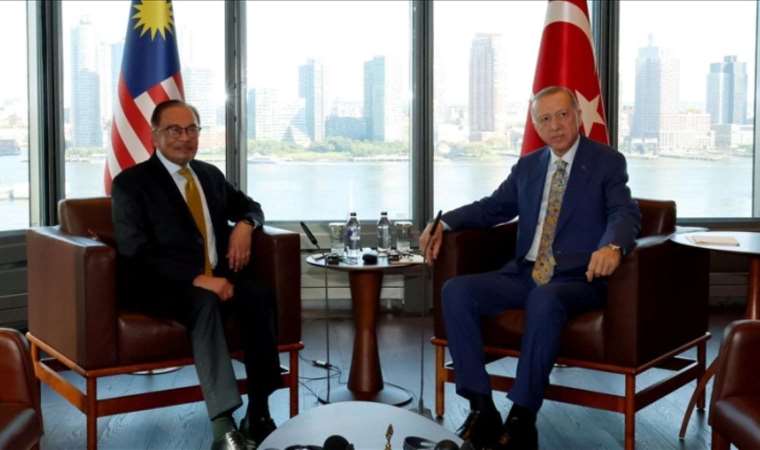Turkish, Malaysian leaders condemn Quran burnings, populist discourse inciting hate speech
Leaders also express concern over emergence of 'new form of racism' characterized by xenophobia, negative profiling and stereotyping of Muslims

Turkish President Recep Tayyip Erdogan and Malaysian Prime Minister Anwar Ibrahim strongly condemned the recent burnings of the Quran and populist discourse that incites hate speech against Islam.
In a joint statement issued Wednesday after the leaders' meeting in New York on the margins of the 78th UN General Assembly, they also expressed concern over the emergence of a "new form of racism" characterized by xenophobia, negative profiling and stereotyping of Muslims.
The leaders condemned "in the strongest terms the recent incidents of the burning of copies of the holy Quran witnessed in several European countries under the guise of freedom of expression as well as populist discourse that incites abuse, hate speech and aggression against Islam and Muslims," it said.
President Erdogan and Ibrahim also expressed "deep concern" about "the trend of increasing hatred, intolerance, discrimination and acts of violence against Muslims and their sanctities that has reached an alarming level in many parts of the world, especially in Europe."
The leaders said they welcomed the adoption of General Assembly Resolution 76/254 to declare March 15 as the "International Day to Combat Islamophobia" as well as the urgent debate during the 53rd session of the United Nations Human Rights Council to discuss the "alarming rise" in premeditated and public acts of religious hatred as manifested by the recurrent desecration of the holy Quran and the adoption of an UN Human Rights Council resolution defining the burning of holy books as religious hatred.
The leaders also welcomed General Assembly Resolution 77/318 on Promoting Interreligious and Intercultural Dialogue and Tolerance in Countering Hate Speech adopted on July 25.
According to the statement, President Erdogan and Ibrahim also underlined that actions of religious hatred, racism, discrimination and xenophobia pose a threat to peace and incite a culture of violence.
The leaders also called on all relevant stakeholders, including governments, to increase efforts to address discrimination, xenophobia, racism and hate speech in line with international human rights.

